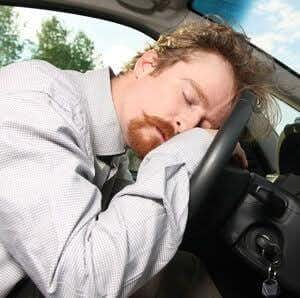
What most people are thinking about when they swallow a sleeping pill is a good night’s restful sleep. Sleep-driving, sleep-eating or sleep-walking are usually far from their imaginations. But many medications taken to induce sleep can also result in sleep-driving or other activities. There are many reports of this complication from zolpidem.
Sleep-Driving on Ambien:
Q. Ambien made me sleep-walk, -eat, and-drive! I would wake up with food in my bed not remembering anything that happened. My mother said I would walk into the living room and start talking to her. I had no recollection this had happened.
A year ago I woke in the hospital with a broken femur, ankle, patella, fractured skull and broken finger. I had been sleep-driving! I never wear pajamas when I drive, EVER! I had my pjs on when they found me so I believe I went sleep-walking to the car, started driving and totaled my car into a tree!
A. We have heard from many others that sleep-driving may be a complication of using Ambien (zolpidem). A police officer shared the following:
“I took one Ambien CR after a meal and went to bed. Some time after that I proceeded to get up, get dressed, left my home in my personal vehicle and was involved in a crash. As a result of the accident I was arrested and lost my job.”
Ambien is not the only sleeping pill that may lead to bizarre behavior. According to the ad for Lunesta, “After taking Lunesta, you may get up out of bed while not being fully awake and do an activity that you do not know you are doing. The next morning, you may not remember that you did anything during the night…Reported activities include: driving a car (‘sleep-driving’), making and eating food, talking on the phone, having sex, sleep-walking.”
We are sending your our Guide to Getting a Good Night’s Sleep in which we discuss the pros and cons of sleeping pills and offer several non-drug approaches.

